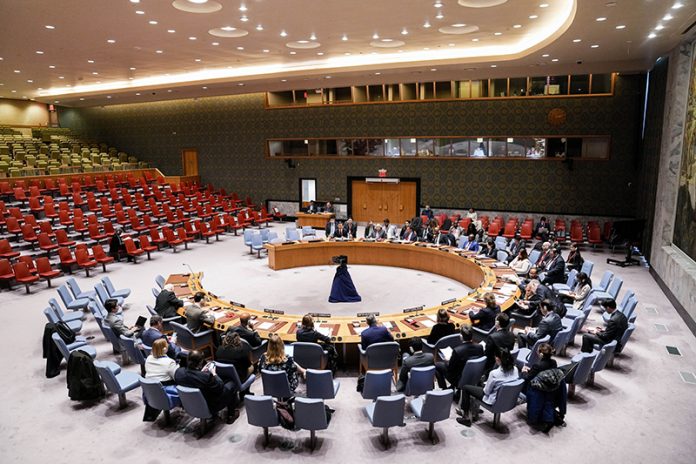
By Edith M Lederer
Associated Press
UNITED NATIONS (AP) — The U.N. Security Council will hold its first open meeting on North Korea’s dire human rights situation since 2017 next week, the United States announced Thursday.
U.S. Ambassador Linda Thomas-Greenfield told reporters that U.N. human rights chief Volker Türk and Elizabeth Salmon, the U.N. independent investigator on human rights in the reclusive northeast Asia country, will brief council members at the Aug. 17 meeting.
Thomas-Greenfield, who is chairing the council during this month’s U.S. presidency, stood with the ambassadors from Albania, Japan and South Korea when making the announcement.
Russia and China, which have close ties to North Korea, have blocked any Security Council action since vetoing a U.S.-sponsored resolution in May 2022 that would have imposed new sanctions over a spate of its intercontinental ballistic missile launches. So the council is not expected to take any action at next week’s meeting.
China and Russia could protest holding the open meeting, which requires support from at least nine of the 15 council members. A senior U.S. official from the U.N. mission, who was not authorized to speak publicly, indicated the U.S. has enough council support for the meeting to take place.
The Security Council imposed sanctions after North Korea’s first nuclear test explosion in 2006 and tightened them over the years in a total of 10 resolutions seeking — so far unsuccessfully — to cut funds and curb the country’s nuclear and ballistic missile programs.
At a council meeting last month on Pyongyang’s test-flight of its developmental Hwasong-18 missile, North Korea’s U.N. Ambassador Kim Song made his first appearance before members since 2017.
He told the council the test flight was a legitimate exercise of the North’s right to self-defense. He also accused the United States of driving the situation in northeast Asia “to the brink of nuclear war,” pointing to its nuclear threats and its deployment of a nuclear-powered submarine to South Korea for the first time in 14 years.
Whether ambassador Kim attends next week’s meeting on the country’s human rights remains to be seen.















